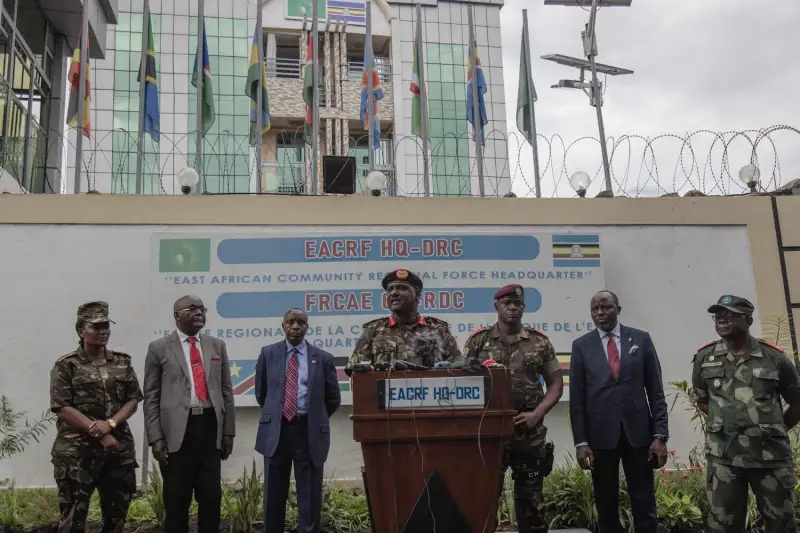
Ramaphosa supports the inclusion of M23 in peace negotiations in the DRC
According to South African President Cyril Ramaphosa, the heads of state summit of the East African Community (EAC) and Southern African Development Community (SADC), which took place in Tanzania on Saturday, February 8, gave hope for peace in the Democratic Republic of the Congo. One of the summit’s notable decisions was the inclusion of state and non-state actors, such as the M23, in future negotiations.
The deployment of his nation’s military to eastern Democratic Republic of the Congo (DRC) with an offensive mission to combat the M23, a Congolese rebel organization at odds with its government over rights violations, has recently put Ramaphosa in the hot seat.
On Tuesday, February 4, for example, members of the South African parliament questioned the defense minister and the head of the SANDF about the deployment. Some of them questioned whether prominent South African politicians had any personal financial stakes in the Democratic Republic of the Congo.
“On the war in the eastern Democratic Republic of the Congo, I recently returned from a conference of heads of state in Tanzania. “The summit’s results offer a glimmer of hope for the unstable eastern Democratic Republic of the Congo,” he said on the president’s office website.
He reflected on the results of an extraordinary SADC summit that took place in Harare, Zimbabwe, two weeks ago, and said that the best way to end a conflict is to make sure that all parties—state actors or non-state actors—are included in the negotiations that lead to a resolution.
“The decision to have direct negotiations and dialogue between all state and non-state parties, including the M23, was one of the most important outcomes of the EAC-SADC summit,” he said.
This will happen within the scope of the Nairobi and Luanda procedures.
“We are happy that Presidents William Ruto of Kenya and Emmerson Mnangagwa of Zimbabwe led the historic joint EAC/SADC summit in endorsing and adopting this inclusive approach,” he said.
“This is a huge advancement. All diplomatic solutions will be unsustainable in the long run and lack credibility until all sides to the problem are brought to the negotiating table, he continued.
All Categories
Recent Posts
Tags
+13162306000
zoneyetu@yahoo.com



